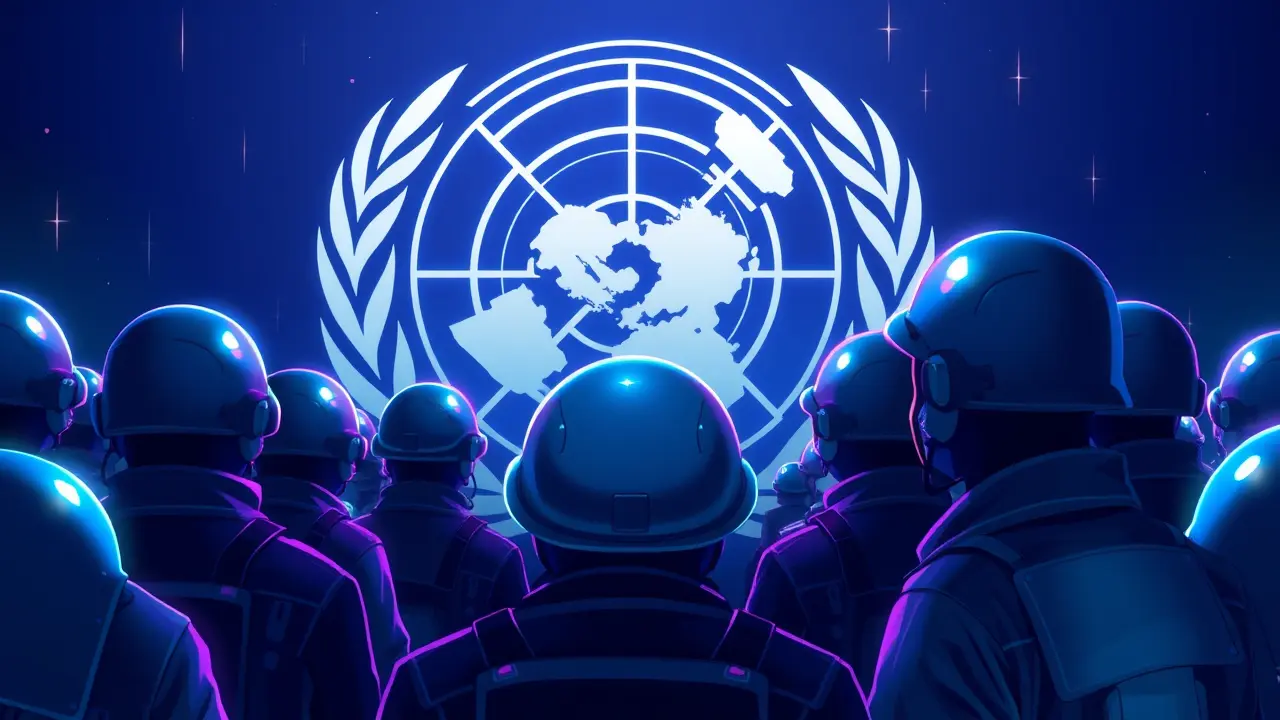UN cuts global peacekeeping force due to US funding shortfall.
The United Nations, that grand but perpetually strained experiment in global cooperation, is once again facing a gut-wrenching contraction of its capabilities, this time through a significant reduction of its global peacekeeping force. This decision, forced by a funding shortfall predominantly stemming from the United States, is not merely a line-item in a budget; it is a tangible step back from the world's collective responsibility to protect the vulnerable.The move arrives as the organization braces for further financial amputations, a direct consequence of Washington's renewed push to advance the 'America First' vision championed by former President Donald Trump. To understand the profound human cost of this, one must look beyond the diplomatic cables and into the dusty outposts of Central Africa, the tense buffer zones in the Middle East, and the refugee camps where the blue helmet is not a symbol of bureaucratic inertia but a fragile promise of safety.This funding withdrawal is a political choice, one that prioritizes nationalistic rhetoric over the intricate, often thankless work of preventing mass atrocities. The architects of this vision frame it as a prudent shedding of global burdens, but from the perspective of those on the ground—the aid workers, the local leaders, the mothers who sleep a little easier knowing international observers are nearby—it feels like a betrayal.The UN’s peacekeeping apparatus, for all its well-documented flaws and occasional scandals, represents a fundamental commitment to the idea that some forms of stability are a global public good. When a major power unilaterally decides to defund this commitment, it doesn't just save money; it actively dismantles a key pillar of the post-World War II order, an order designed precisely to prevent the kind of chaotic, unilateral power projections that have historically led to greater conflict.We have seen this story before, in the ghostly aftermath of failed missions in Rwanda and Srebrenica, where political will and resources evaporated with catastrophic consequences. The voices of women, in particular, are often the first silenced when peacekeepers depart, as their protection from systematic sexual violence in conflict zones is frequently tied directly to the presence of these international forces.This is not abstract economizing; it is a calculated risk with human lives as the collateral. The 'America First' doctrine, in this context, translates to a world where might makes right, where the suffering of distant strangers is deemed an acceptable cost of doing business, and where the very concept of shared global security is hollowed out until it is meaningless. The consequences will be measured not in dollars saved, but in conflicts reignited, in displaced populations swelling, and in the slow, steady erosion of the idea that we bear any responsibility for one another across borders.
It’s quiet here...Start the conversation by leaving the first comment.
© 2025 Outpoll Service LTD. All rights reserved.
